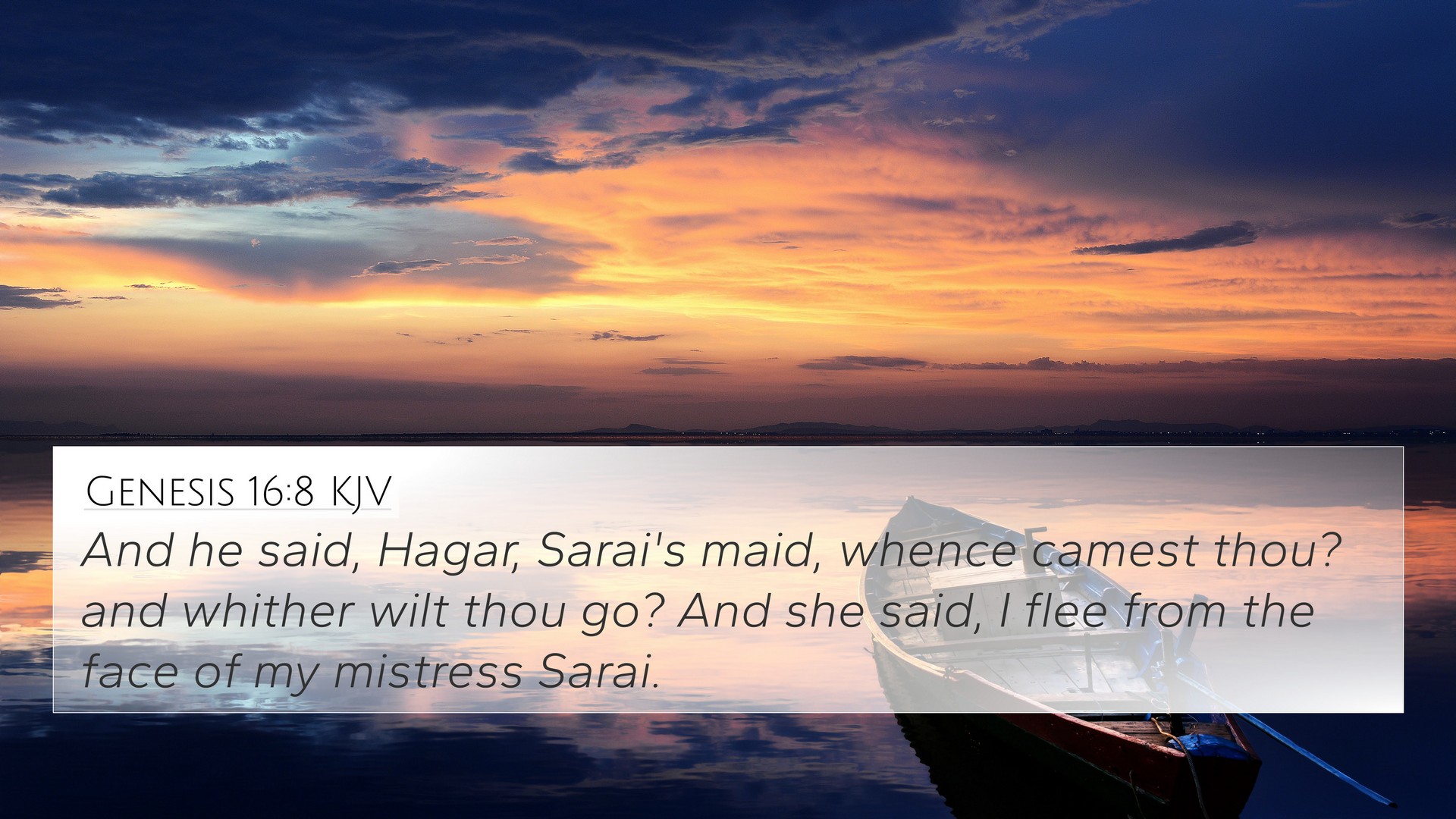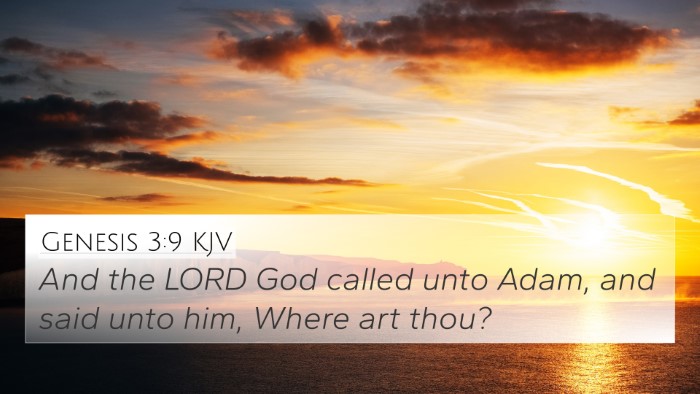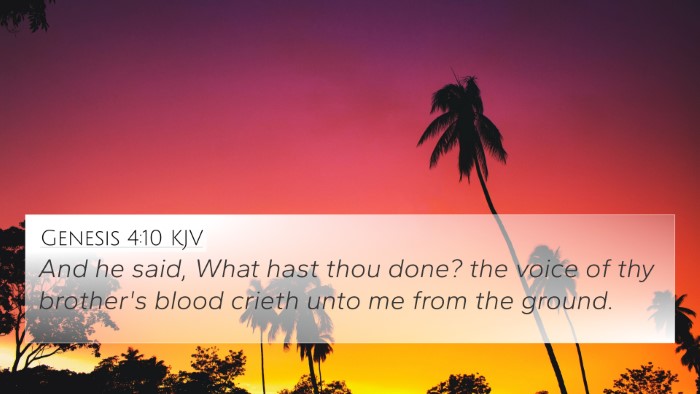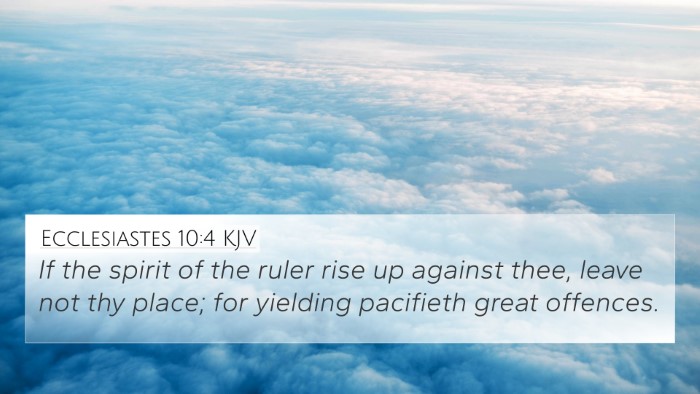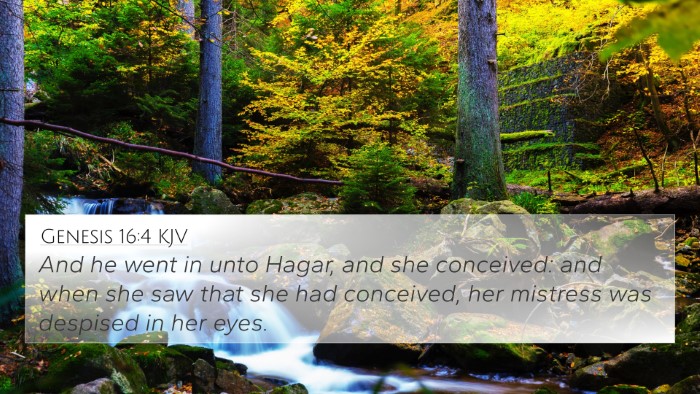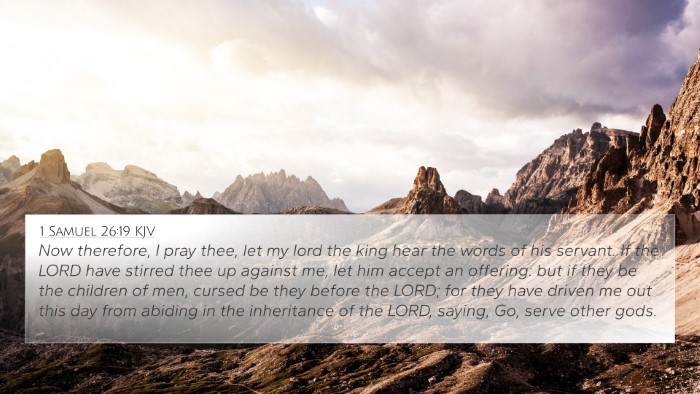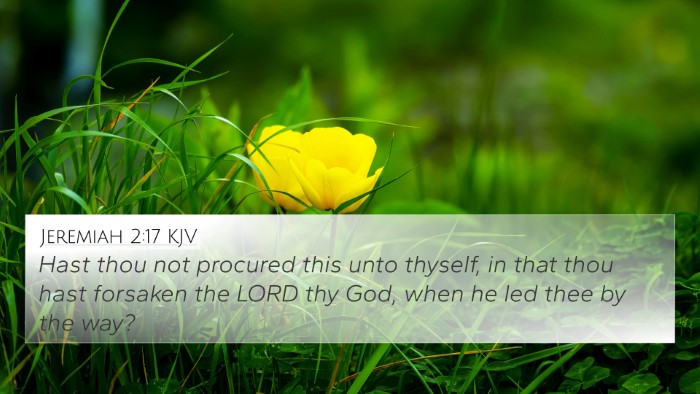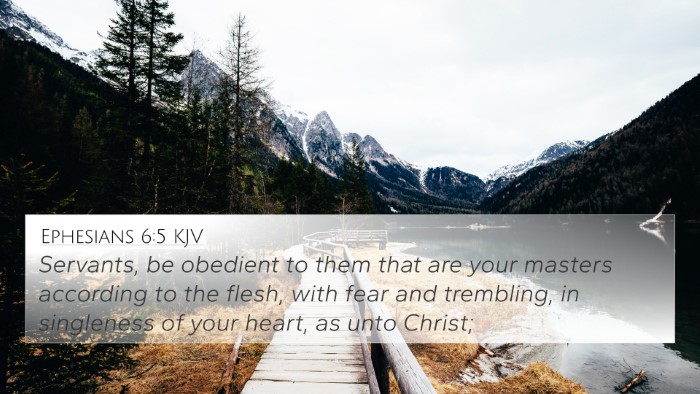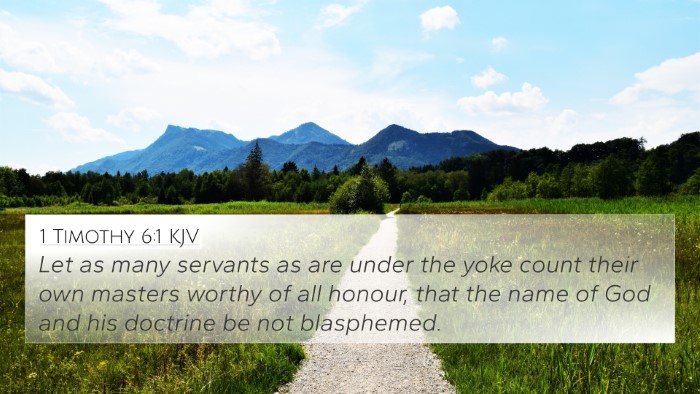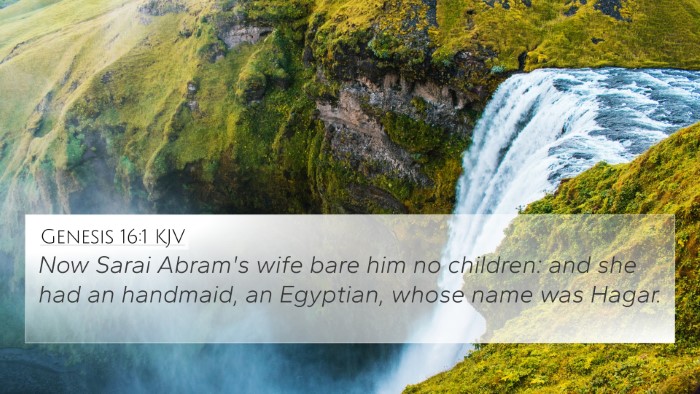Understanding Genesis 16:8
The verse Genesis 16:8 states:
"And he said, Hagar, Sarai's maid, whence camest thou? and whither wilt thou go? And she said, I flee from the face of my mistress Sarai."
Summary of Meaning
This verse depicts a critical moment in the life of Hagar, an Egyptian maidservant to Sarai (later Sarah), the wife of Abram (later Abraham). It occurs in the larger context of God’s promise to Abram and the challenges faced by his household.
Thematic Insights from Commentaries
- Matthew Henry: Emphasizes the divine interrogation by the angel, asking Hagar about her origins and destination, which serves to remind her of her identity and situation. It reflects God's concern for her plight and His intent to guide her.
- Albert Barnes: Focuses on the significance of Hagar’s response, highlighting her status as a servant and the consequences of Sarai's decisions which led her to flee. This indicates a larger narrative about obedience and the complexity of human relationships and their impact on divine purposes.
- Adam Clarke: Provides context regarding Hagar's status as an Egyptian and captures the depth of her feelings regarding her servitude and the harsh treatment she experienced, thus giving voice to the marginalized in the biblical narrative.
Cross-Referencing Biblical Texts
Genesis 16:8 invites exploration of various biblical themes and connections. Below are key cross-references that relate to the themes found within this verse:
- Genesis 12:1-3: God's promise to Abram, which drives the subsequent actions of Sarai and Hagar.
- Exodus 3:7: God's acknowledgment of the suffering of His people, similar to Hagar's plight.
- Galatians 4:22-31: Paul’s allegorical interpretation of Hagar and Sarah, illustrating the concept of bondage versus freedom in relation to God's promises.
- Deuteronomy 24:14: The protections afforded to the marginalized, such as servants and the oppressed.
- 1 Peter 5:7: Connection with God’s care for those who are suffering or burdened, akin to Hagar's experience.
- Matthew 10:29-31: Assurance of God's concern for all, including the lowly and unnoticed, reflective of Hagar's situation.
- Luke 1:52-53: A parallel in God’s regard for the humble and His just actions in lifting the oppressed.
Connections between Bible Verses
Genesis 16:8 touches on various themes including:
- Identity: Exploring who we are in God's eyes, as Hagar reflects on her predicament.
- Divine Intervention: The way God reaches out in moments of trouble, much like He does throughout scripture.
- Human Relationships: The dynamics between rulers and servants, and their ethical implications in Scripture.
How to Utilize Cross-References for Deeper Understanding
To comprehend the depth of Genesis 16:8, utilizing tools for Bible cross-referencing can illuminate its significance:
- Bible Concordance: A helpful resource for locating similar themes and words throughout the scripture.
- Cross-Reference Bible Study: Encourages a comparative analysis of verses dealing with servitude and oppression.
- Bible Cross-Reference Guide: To facilitate connections between Old and New Testament themes.
Conclusion
Genesis 16:8 is a verse rich in meaning, addressing issues of identity, suffering, and divine oversight. By employing a cross-referencing approach, readers can uncover extensive connections and deepen their understanding of the scriptures. This method creates a thematic network that enriches one's biblical knowledge and enhances personal study or sermon preparation.
Further Study and Reflection
Consider meditating on the experiences of Hagar, reflecting on what it means to be seen and heard by God amid trials. Engage with the cross-referenced scriptures to draw parallels and enrich understanding of God's overarching plan as seen throughout the Bible.
